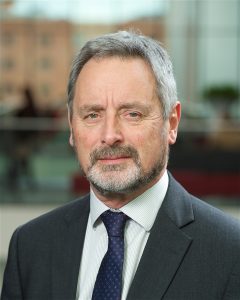Steering Committee
Chair – Professor Greg Rubin
Greg is Emeritus Professor of General Practice and Primary Care at Newcastle University, Greg was a co-applicant on the successful bid for the CanTest CRUK Catalyst Award and now chairs the CanDetect Steering Group..
Greg has been active in early diagnosis research for over 20 years and was closely involved in many of the activities that resulted from the English Cancer Reform Strategy in 2007, collectively known as the National Awareness and Early Diagnosis Initiative. He continues to advise on these matters at a national level. Of particular note is his clinical leadership of the National Cancer Diagnosis Audits, the first in 2010, the second in 2016. These have generated many new insights into the process of cancer diagnosis and use of diagnostic tests by GPs, and have informed new models of cancer services at the interface between primary and secondary care. His research group has undertaken evaluations of the ACE programme of Multidisciplinary Diagnostic Centres.
In 2017 Greg was awarded the Cancer Research UK Jane Wardle Prevention and Early Diagnosis Prize for world-leading research in the field of prevention and early diagnosis of cancer.
Follow Greg on Twitter @GregRubin4
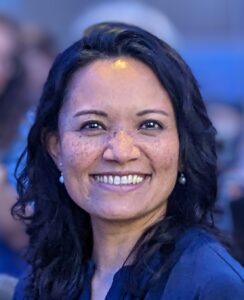 Dr Bristi Basu
Dr Bristi Basu
Bristi is an academic consultant in medical oncology, specialising in experimental cancer therapeutics in the University of Cambridge and Cambridge University Hospitals NHS Foundation Trust. She co-leads the Cambridge Experimental Cancer Medicine Centre with Prof Duncan Jodrell and the CRUK Cambridge Centre Pancreatic Cancer Programme with Dr Giulia Biffi. Other roles include Cancer Research UK Clinical Research Committee member; Capacity Building leadership team within the Cambridge NIHR Biomedical Research Centre; NCRI Upper GI Hepatobiliary and Pancreatic Cancer subgroups (lead for Novel Therapeutics workstream); Eastern Lead for NIHR CRN Early Phase Cancer Studies Specialty Group.
Her research focus is in drug development with a tumour site-specific focus in hepato-pancreatico-biliary cancers, translating preclinical findings on lead candidate agents into early phase clinical trials of novel therapeutic drugs as chief investigator, principal investigator and co-investigator in academic-led and industry-sponsored Phase I, II and III clinical trials, including first-in-human and first-in-class studies.
 Professor Brendan Delaney
Professor Brendan Delaney
Brendan is a leading exponent internationally of the “Learning Health System’ (LHS) concept. Although his initial training in research was in health technology assessment, real-world (pragmatic) clinical trials and clinical research in Family Medicine, since 2003 he has worked in the area of Clinical Informatics, being appointed to a Chair in Medical Informatics at Imperial in 2015 and elected one of the first 100 founding fellows of the new UK Faculty of Clinical Informatics in 2017. He has had wide exposure to European and US clinical informatics through workshops and symposia.
From 2010-15 he led a €9million EU FP7 programme, ‘TRANSFoRm: Patient Safety and Translational Research in Europe’. TRANSFoRm set about using ontologies, data standards and models to create a common infrastructure for the LHS with three specific use cases (eSource for clinical trials, phenomics and clinical diagnosis).
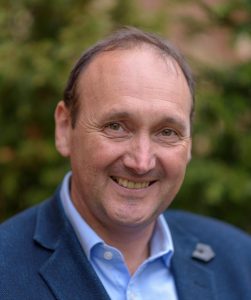 Professor Jon Emery
Professor Jon Emery
Jon is the inaugural Herman Chair of Primary Care Cancer Research and an NHMRC Practitioner Fellow at the University of Melbourne, an innovative role within the Victorian Comprehensive Cancer Centre (VCCC). He is also Director of the Australian Primary Care Collaborative Cancer Clinical Trials Group (PC4). He was previously Professor of General Practice and Head of the School of Primary, Aboriginal and Rural Healthcare at the University of Western Australia.
Jon moved to Australia in 2004 from the University of Cambridge and has developed a joint research programme in Australia and Cambridge on cancer and genetic medicine in primary care with CanTest & CanDetect Director Fiona Walter. He is a Visiting Professor at QMUL in recognition of this joint programme.
Jon’s research focuses on primary care oncology and the development and evaluation of complex interventions including computerised risk assessment and decision support systems, new screening and diagnostic technologies, symptom awareness campaigns, and the application of advances in genomic medicine in primary care. He is leading the development of Cancer Data Platform at the VCCC, which will link clinical general practice data to cancer hospital and cancer registry data. He will contribute to the CanTest research with specific focus on colorectal cancer and melanoma risk and diagnosis, and the use of big data to evaluate diagnostic tests in primary care.
Follow Jon on Twitter @ProfJonEmery
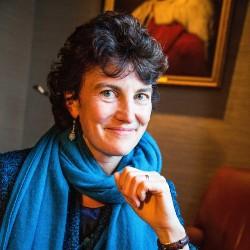 Professor Rebecca Fitzgerald
Professor Rebecca Fitzgerald
Rebecca is Professor of Cancer Prevention at the University of Cambridge and Director, Early Cancer Institute. She still practices medicine as an Honorary Consultant in Gastroenterology at Addenbrooke’s Hospital, Cambridge.
She studied Medicine at Cambridge University and gained her MD in 1997 following a period of research at Stanford University, California, with Professor George Triadafilopoulos. He postdoctoral training took place at the Department of Adult and Paediatric Gastroenterology, St Bars and The Royal London School of Medicine and Dentistry with Professor Michael Farthing, funded by an MRC Clinician Scientist award. She returned to Cambridge in 2001.
The focus of her research group is to improve methods for early detection of oesophageal cancer through better understanding of the molecular pathogenesis. Rebecca was awarded the prestigious Westminster Medal and Prize for her first proof-of-concept work on the CytospongeTM and associated assays for diagnosing Barrett’s oesophagus in 2004. Since then this work has received an NHS Innovation Prize (2011) and the BMJ Gastro Team of the Year Award (2016). She received a Lister Prize Fellowship in 2008 and in 2013 was awarded an NIHR Research Professorship to facilitate translational research for patient benefit. She was elected a Fellow of the Academy of Medical Sciences in 2013. In 2018 she received the Jane Wardle Prevention and Early Diagnosis Prize, and in 2021 the Don Listwin Award for Outstand contribution to Cancer Early Detection.
Rebecca has a plethora of teaching experience and is a Member of the Institute of Learning and Teaching. She is Director of Medical Studies for Trinity College Cambridge, where she is involved with undergraduate and clinical teaching. She has a wealth of lecturing experience including radio broadcasts for BBC Radio 4 and ABC Radio Australia, Health of the Nation. Rebecca is committed to bringing research advances into clinical practice and inspiring other researchers to do likewise.
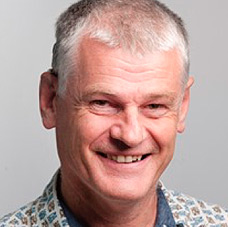 Professor Willie Hamilton
Professor Willie Hamilton
Willie co-led the CanTest Collaborative with Fiona Walter.
A GP and lead of the DISCOVERY group in Exeter, Willie was also clinical lead for the 2015 NICE guidance, as well as being a member of the Department of Health’s Policy Research Unit for cancer awareness, screening and early diagnosis.
Willie worked on early cancer diagnosis for over twenty years. This began with studies that sought to identify and quantify the important features of cancer in a GP’s consulting room. This proceeded on a cancer site-by-site basis and mapped out the important features of colorectal cancer, then of lung, etc. Individual features were then tackled, e.g. what were the cancer risks from a raised calcium level or from thrombocytosis. Work then moved on to implementation, with adaptation of the teams outputs to GP computer systems and supporting NICE in collating NG12, the massive guidance on cancer investigation. This ongoing work has been supported by research grants from NIHR, CRUK, the Department of Health, and other charities.
Willie has won the cancer Research Paper of the Year several times, and the Overall Research Paper of the Year twice. He was awarded a CBE for improving cancer diagnosis in 2019.
Follow Willie on Twitter @BoomboomchiefsT
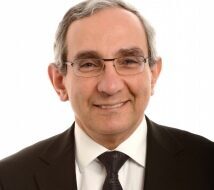 Professor George Hanna
Professor George Hanna
George Hanna was trained in Ninewells Hospital, Dundee, Scotland in laparoscopic and oesophago-gastric surgery under the clinical and academic mentorship of Professor Sir Alfred Cuschieri. He obtained FRCS (Edinburgh) in 1993 and PhD (University of Dundee) in laparoscopic surgery in 1997. He joined Imperial College as Clinical Senior Lecturer and Upper Gastrointestinal Consultant Surgeon in 2003 and promoted to Reader in 2005 and Professor of Surgical Sciences in 2008. He became the Head of Division of Surgery in 2012 and Head of Department of Surgery and Cancer in 2018.
Professor Hanna’s clinical work is based at Hammersmith Hospital, Imperial College Healthcare NHS Trust and includes oesophageal and gastric cancer and advanced laparoscopic surgery.
The current interests of his laboratory revolve around volatile organic compounds analysis for biomarker discovery and understanding the molecular drivers of volatile biomarkers, supported by CRUK research programme (AROMA). This programme aims to develop and validate a non-invasive breath test as a platform diagnostic technology to detect gastrointestinal (oesophageal, gastric, colorectal, pancreatic and liver) cancers. Professor Hanna also leads a research programme on point-of-care diagnostics, supported the NIHR Medtech and In vitro diagnostics co-operative. His surgical research aims to develop, validate and use competency assessment tools for training and quality assurance of surgical performance in randomised controlled clinical trials.
Current leadership positions include Editor in-chief, Surgical Endoscopy and Allied Technology (2016- ), President Elect of European Association of Endoscopic Surgeons (EAES) (2021-2022), Co-chair of Publication Committee, International Society of Esophageal Diseases (ISDE) (2021- ), Director of National Institute of Health Research (NIHR) London In-Vitro Diagnostics Co-operative (2018- ), Co-lead of Cancer Research UK Convergence Major Science Centre (Imperial College London and Institute of Cancer Research (2021-), Director of London Higher Surgical Skills Training Simulated Programme (2012- ), Clinical Lead of the London MedCity Diagnostic Growth Hub (2021- ), Deputy Chair of CRUK Cancer Early Detection and Diagnosis Expert Panel – Trials, Behavioural, Health Systems and Health Economics (2021- ).
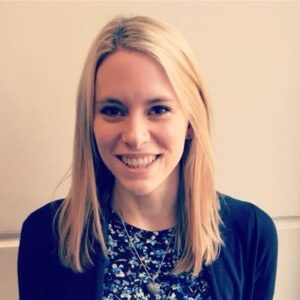 Dr Sammy Quaife
Dr Sammy Quaife
Sammy is a Reader in Behavioural Science within the Centre for Cancer Screening, Prevention and Early Diagnosis at Queen Mary University of London’s Wolfson Institute of Population Health. She is a Chartered Psychologist and holds an Honorary Associate Professor position within the Department of Behavioural Science and Health at University College London. Dr Quaife’s research interests primarily concern the psychological and behavioural aspects of early detection of cancer, and how to understand and intervene to improve the equity, acceptability, implementation, and impact of population-level detection strategies. Much of her work is concentrated in lung cancer screening with an applied intervention focus. She is the lead Behavioural Scientist on two major lung screening implementation studies (the SUMMIT Study and the Yorkshire Lung Screening Trial) and an expert advisor to NHS England’s Targeted Lung Health Check Programme.
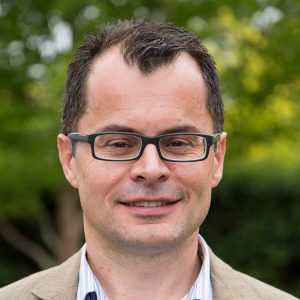 Professor Matthew Thompson
Professor Matthew Thompson
Matthew is a Clinical Research Scientist at Google based in Seattle, USA and also Professor at the University of Washington Department of Family Medicine. As a clinical researcher, he has over 20 years’ experience at the University of Oxford and the University of Washington. His research focus has been improving the identification of adults and children with serious illness in primary care settings. This has included improving evidence for identification of patients with serious infection, and improving early detection of adults with lung and ovarian cancer, including as part of the CRUK-funded CanTest Collaboration. In 2022, Matthew joined Google where his work involves research on a number of devices and areas, including novel sensors on mobile phones and wearables for a variety of health conditions, and potential use of internet search data to inform diagnosis and risk prediction. Matthew has worked as a Family Physician on 3 continents and continues to see patients at a family practice clinic in Seattle.
 Professor Niek de Wit
Professor Niek de Wit
Niek has been working as a general practitioner for more than 25 years. He is professor in General Practice at Utrecht University in the Netherlands and since 2020 has been Director of the Julius Center of Health Sciences and Primary Care at the UMC Utrecht. (www.juliuscenter.nl).
He has a strong interest in health care innovation in primary care. He was the founding director of the Julius Health Centers, the academic general practice in Utrecht (www.lrjg.nl). More recently he has been involved in the development of a regional health care network the Utrecht region.
His academic research has focussed on gastro-intestinal disease and oncology in primary care. He is founding member of the European Society of Primary Care Gastroenterology and co-author of clinical practice guidelines for IBS, dyspepsia, and colorectal cancer in the Netherlands.
He was visiting professor at Kings’ College, London and at Durham University, UK.



